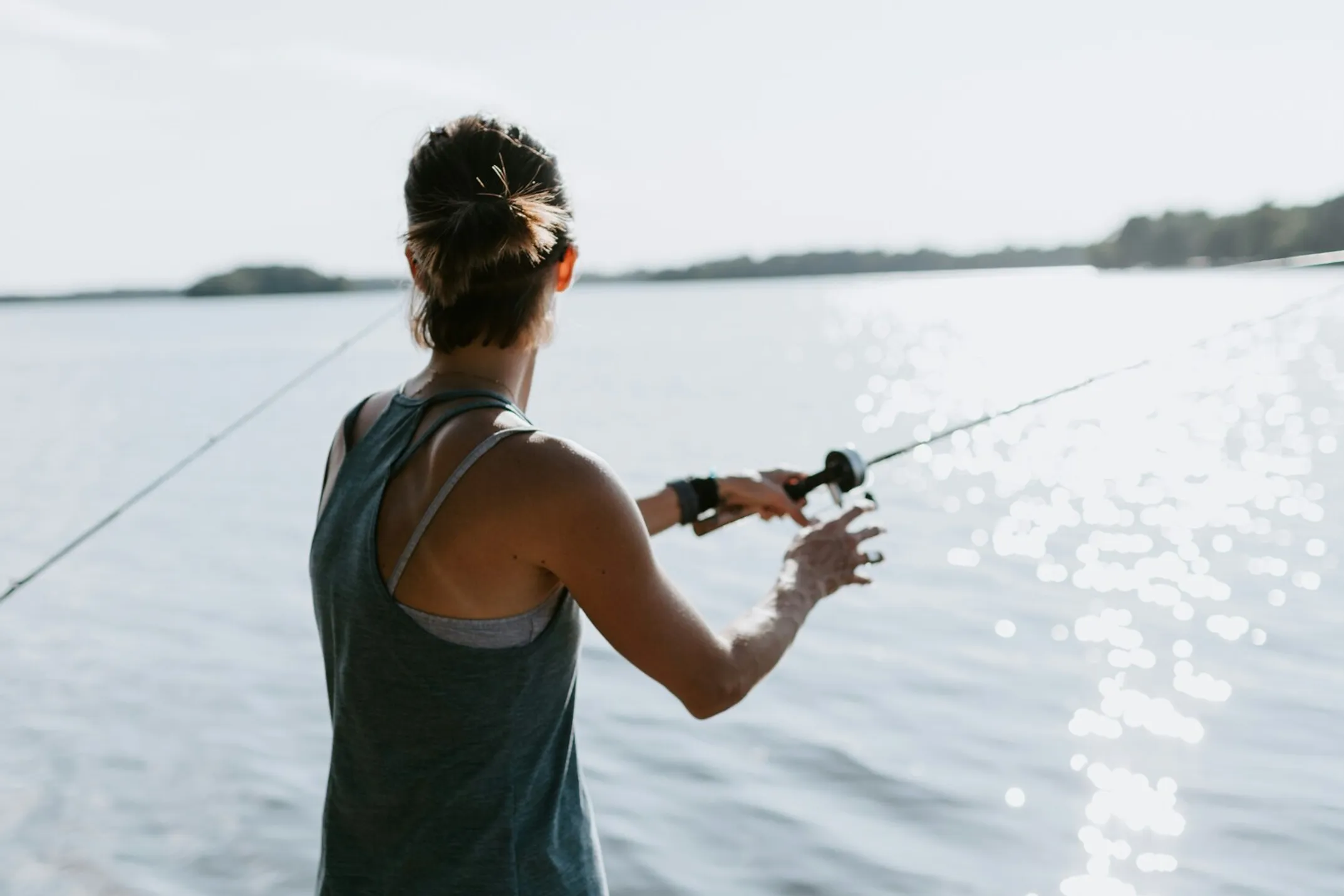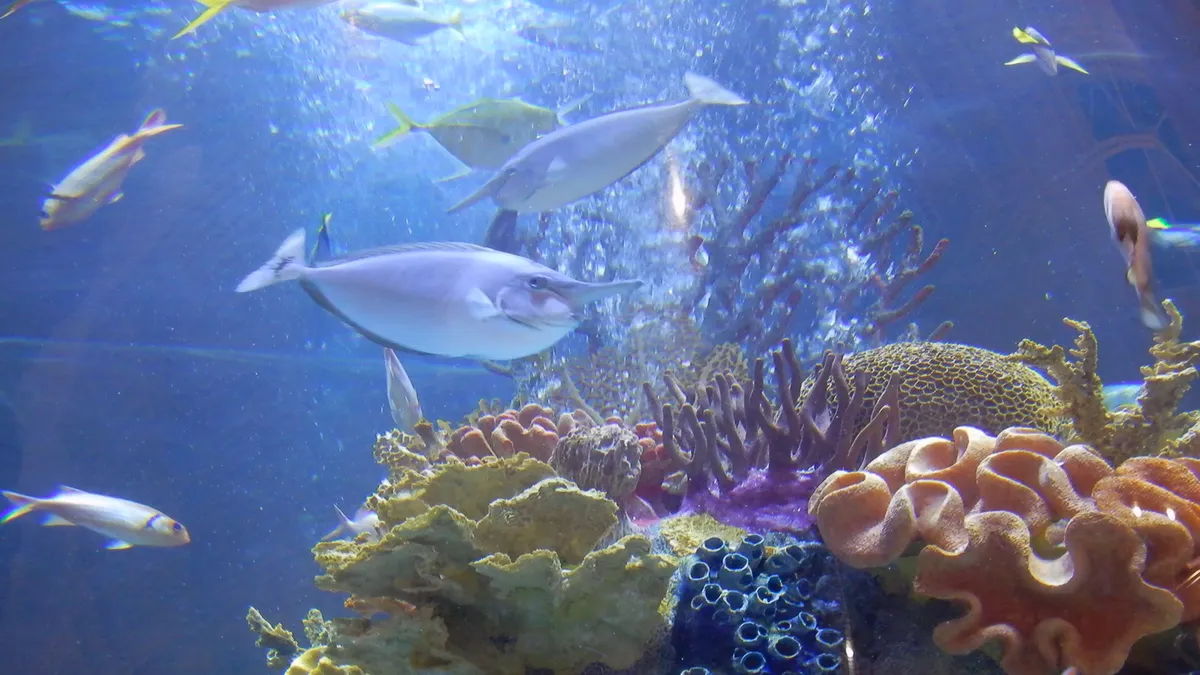

Oahu's Marine Bounty
A Guide to the Fish Species in Hawaiian Waters

Written by a Local Expert
Leilani AkoMeet the Stars of Oahu's Waters
One of the greatest joys of fishing in Oahu is the incredible diversity of marine life you might encounter. From the powerful pelagic predators of the deep blue to the colorful and crafty inhabitants of the reefs and flats, each species offers a unique challenge and, often, a delicious reward.
Deep Sea Giants
Ahi (Yellowfin Tuna)
Offshore, deep sea environments
Year-round, peak June-Aug for 100lb+ giants
20-200+ lbs
Excellent eating, prized for sashimi and grilling. These powerful fighters are known for their stamina and speed, often making long runs that test angler and equipment alike.
Mahi Mahi (Dolphinfish, Dorado)
Offshore, deep sea
Year-round, best in Winter/Spring
10-50+ lbs
Excellent eating with firm, white, mildly sweet flesh. Known for their acrobatic jumps and brilliant golden-green coloration that fades quickly after landing.

Ono (Wahoo)
Offshore, deep sea
Year-round, more common in cooler months
15-75+ lbs
Excellent eating with firm, white, delicate flavor. Lightning-fast with razor-sharp teeth, Ono are known for spectacular initial runs that can strip line quickly.
Nearshore & Reef Fish
Ulua (Giant Trevally)
Reefs, channels, and shoreline areas
Year-round fishing
20-100+ lbs
Good eating (especially smaller ones) and incredibly strong fighters. Can have ciguatera risk in very large specimens. Highly respected in Hawaiian fishing culture.
Papio (Trevally, juvenile Ulua)
Reefs, flats, shoreline
Year-round availability
1-15 lbs
Excellent eating and highly prized. These aggressive fighters are perfect for shore-based anglers and provide exciting action on light tackle.
Oʻio (Bonefish)
Shallow flats and sandy shorelines
Year-round
2-10+ lbs
Good eating (bony, but tasty if prepared well). Primarily a sport fish due to incredible fighting ability and wariness that makes them challenging to catch.
🍽️ Eating Quality
💪 Fighting Ability
- Ulua - Brute strength
- Ahi - Stamina & speed
- Oʻio - Lightning runs
- Mahi Mahi - Acrobatics
- Ono - Initial burst
📖 Fishing Guide
🌙 Hawaiian Lunar Calendar
Traditional Hawaiian fishing follows the moon phases. Hilo (new moon) and Mahealani (full moon) are excellent fishing times.
The Hawaiian Fishing Calendar
While many fish species can be caught year-round in Oahu's temperate waters, the abundance of certain species can fluctuate with the seasons. Many anglers consider June to August prime months for targeting large Ahi (Yellowfin Tuna), some exceeding 100 pounds. Pacific Blue Marlin are also more prevalent in the summer and fall months. Mahi Mahi tend to be more abundant in the spring, while Ono (Wahoo) are often caught more frequently during the cooler months.
Beyond the seasons, traditional Hawaiian culture relied on a lunar calendar, the Kaulana Mahina, to guide various aspects of life, including fishing. This calendar closely observed the phases of the moon, as each phase was believed to influence tides, currents, and fish behavior.
🌑 Hilo (New Moon)
Good for beach and reef fishing. Women often hand-fished, men torch-fished. Low light conditions favor certain fishing techniques.
🌓 Kū Nights (First Quarter)
Generally good fishing periods with moderate tidal movement. Balanced conditions for various fishing methods.
🌕 Mahealani (Full Moon)
Generally good fishing, especially at sea and on reefs in the evening. The last night of the full moon period was considered excellent for all types of fishing.
🌚 Muku (Dark Moon)
Excellent for all kinds of fishing, including diving for squid and octopus, as low tides made trapping fish easier.
Modern anglers also recognize the influence of lunar phases and tides. Generally, fish tend to bite best when tidal currents are active, stirring up food sources. The strongest currents occur during the new and full moons when the gravitational pulls of the sun and moon align, creating larger tidal ranges.

